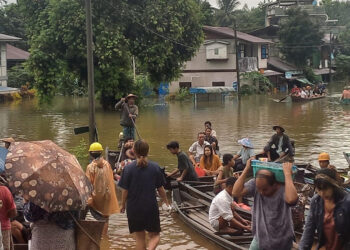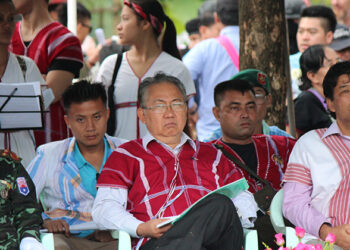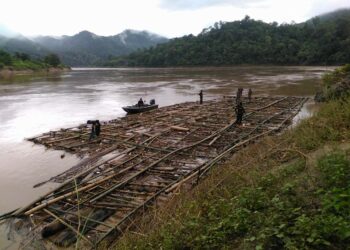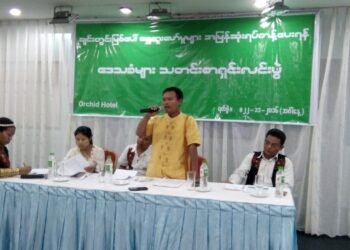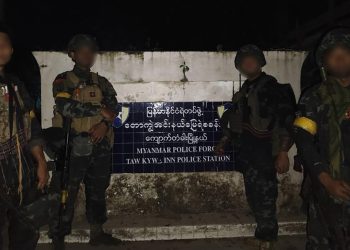RANGOON — On the occasion of the International Day of Action for Rivers, campaigners in Burma rejected plans for large dams in Burma’s ethnic minority areas and said local people have the right to decide how to use their resources.
More than 16 ethnic civil society organizations from the Burma Rivers Network (BRN) and the Save the Salween Network (SSN) released a joint statement on Tuesday saying that 50 planned dams on the country’s rivers will increase hydropower production from 3,000 to 46,000 megawatts by 2030 and that two-thirds of that power will be exported to neighboring countries.
The dams will have a devastating, irreversible impact on Burma’s rivers—including the Irrawaddy and the Salween rivers—which are vital arteries for millions of people, nourishing people’s livelihoods, and home to fragile ecosystems, it stated.
“Foreign investors should not be building dams in Burma’s conflict zones,” Mi Ah Chai, the coordinator of Burma Rivers Network, was quoted as saying in the statement.
“The dams are fueling conflict, human rights abuses and displacement, and destroying local environmental resources,” she said.
Mi Ah Chai told the Irrawaddy that campaigners across the country held events in Kachin, Shan, Karenni, Karen, and Mon states together with local communities, commemorating the International Day of Action for Rivers and raising public awareness regarding the threat of dams.
The groups’ statement will be sent to ruling National League for Democracy lawmakers as well as ethnic representatives, she said.
Prominent Burmese environmentalist U Win Myo Thu stressed the need for awareness of human-inflicted damage to river ecosystems in a video message posted on Facebook to mark the day.
He said many hydropower projects attempted to use the country’s rivers for the sake of a handful of people.
“We request that our rivers are used for the sake of the people and in accordance with their desires,” he concluded.






